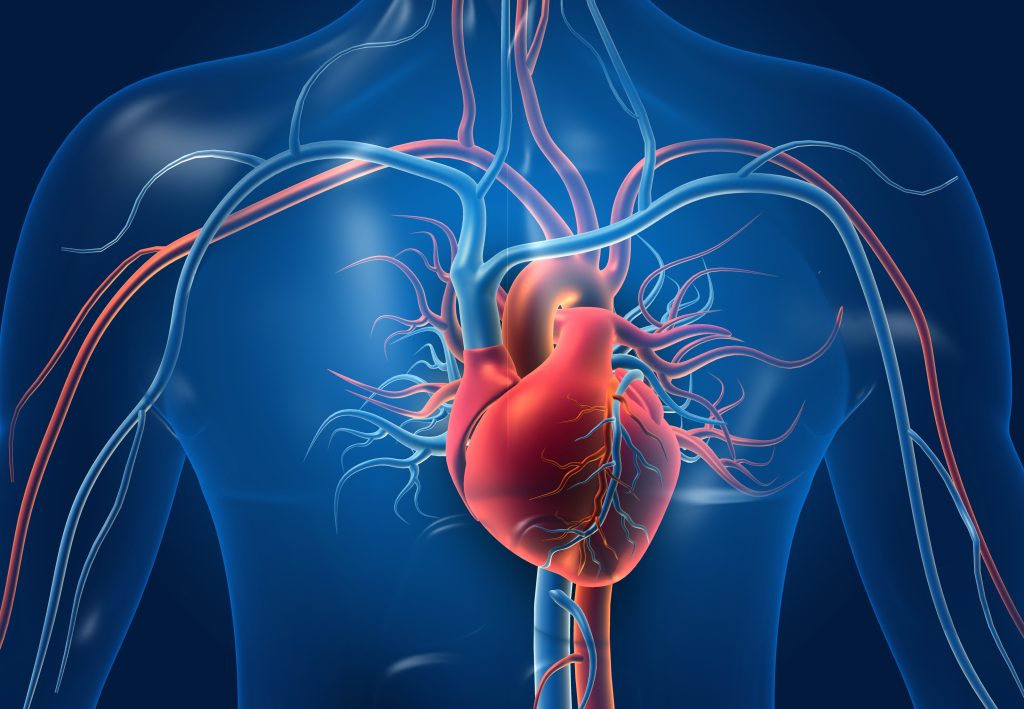Lifestyle Interventions and Risk Factors for Cardiac Metabolism (Cardiac Metabolic Health)

The heart is a muscle, and, like other muscles in the body, it uses chemical energy to power contraction. Adenosine triphosphate (ATP) is the primary source of this energy, and most cardiac ATP (up to 90%) comes from fatty acids, while the remaining ATP comes from lactate, amino acids, ketone bodies, and blood glucose. The process of transforming these into ATP is called cardiac metabolism.
How Does Cardiac Metabolism Work?
Normal cardiac metabolism works as the ATP powers the heart’s contractions and ion pumps. The pool of ATP in the heart is relatively small and can be depleted quickly. Continuous synthesis of ATP is required to maintain the level of ATP necessary for heart operation. However, ATP generation is affected by many factors and is directly affected by both health factors and lifestyle factors.
Risk Factors Affecting Cardiac Metabolic Health
Many people assume that the primary force affecting cardiac health in general is genetics. While genetics do play a role, other risk factors play even larger roles.
Poor Diet
Diet is one of the main factors affecting cardiac metabolism and overall cardiac health. The standard American diet (SAD), which is high in saturated fats and sugar, creates serious deficiencies over time.
Exercise
We tend to think of exercise as something you do when you want to lose weight. And exercise is indeed an essential step in weight loss. However, it does so much more than help your body burn calories. Aerobic and anaerobic exercise both help condition the heart and improve cardiac metabolism.
Stress Management
The modern lifestyle is incredibly stressful. Our bodies are not designed to deal with the level of stress we heap on ourselves, and over time, that can lead to serious health conditions. It’s a major factor in hypertension (high blood pressure), which can lead to heart attack and stroke. It’s also been linked to other behaviors that negatively affect cardiac metabolic health, including smoking, lack of physical activity, heavy drinking, and overeating.
Cardiac Metabolic Factors and Prevention Strategies
The most important step to take in improving your cardiac metabolism is simply realizing that you need to change your lifestyle. Without that realization, no action is possible. Once you’ve realized the need to make changes, you can take a personalized approach to improving cardiometabolic health.
Health Checks
One of the first steps is to have your health checked. Your blood pressure, blood sugar, and cholesterol levels should be checked. Once you know these numbers, you can work with your doctor to create a personalized action plan that helps you move them closer to your ideal range. If you’re already in the ideal range, you can create a plan that helps keep your numbers there.
Establish a Diet Good for Health Health
Another important step is establishing and maintaining a healthy diet. The standard American diet is often deficient in vital nutrients while too heavy in saturated fat and refined sugars/carbs. A balanced diet, such as the Mediterranean diet, offers a good mixture of essential nutrients and healthy fats while also providing plenty of flavor. Diets that are more plant-based than this can offer even more benefits.
Get Physically Active
Want to improve your cardiovascular health? There’s no substitute for exercise. Regular exercise, even as little as 20 minutes three days per week, can dramatically affect cardiac metabolism and overall cardiovascular health. The heart is a muscle – the more you work it, the stronger and more efficient it becomes. It also reduces the risk of cardiovascular disease.
Reduce Alcohol Consumption
Alcohol consumption, even in small amounts, has been linked to a wide range of negative outcomes, including damage to the heart muscle. Previously, researchers suggested that light to moderate drinking had a beneficial impact on heart health through stress reduction. However, the WHO has recently reversed its previous recommendations, stating that even small amounts of alcohol can increase your chance of death from many conditions.
Final Considerations
Many risk factors affect cardiac metabolism. In a healthy heart, ATP is produced efficiently. In an unhealthy heart, it is not produced efficiently, and the body instead relies more on blood glucose oxidation rather than fatty acid utilization. The good news is that cardiac health is not dictated solely by genetics.
Rather, lifestyle factors, including exercise, diet, and stress management techniques, can all have dramatic impacts on cardiometabolic health. This puts the power to make positive change within your hands. From establishing a healthful diet to embarking on a weekly exercise regimen, reducing alcohol consumption, quitting smoking, and watching your blood sugar, cholesterol, and blood pressure, there are plenty of ways to improve your cardiovascular health and reduce the risk of heart disease.
Metabolism Research at the CVRTI
At the Nora Eccles Harrison Cardiovascular Research and Training Institute (CVRTI), there are several labs developing a greater understanding of altered cardiac metabolism. These scientific insights are also leading to new therapies. The Shaw Lab , together with the Hong Lab and Dosdall Lab , and in collaboration with the Selzman Lab , Drakos Lab, and Palatinus Labs are developing several new gene therapies for heart failure due to ischemic heart disease which alters the metabolism of the failing hearts. In addition, the Drakos Lab , Chaudhuri Lab, Franklin Lab , Hong Lab and Shaw Lab are developing new mechanistic insights into the fundamental reasons why heart metabolism is altered during disease. The CVRTI has the largest group of investigators focused on failing heart muscle and cardiac metabolism in the country.


